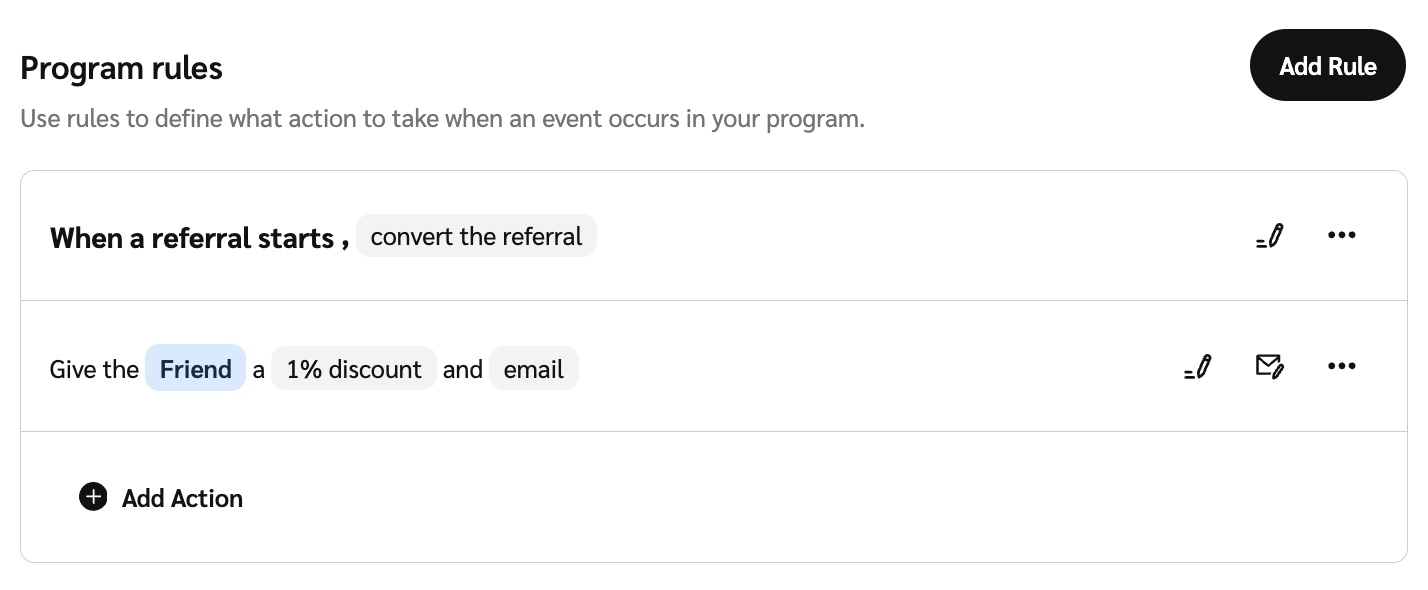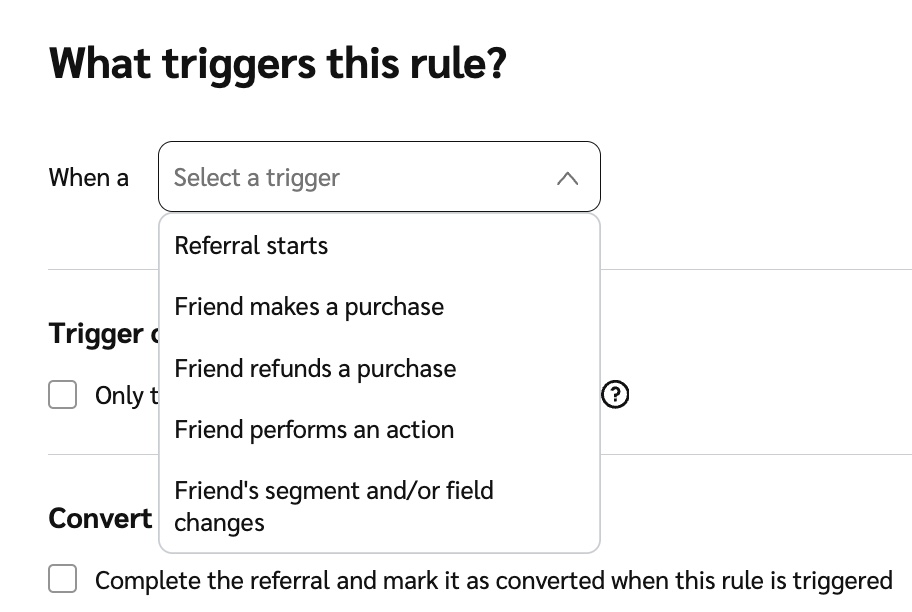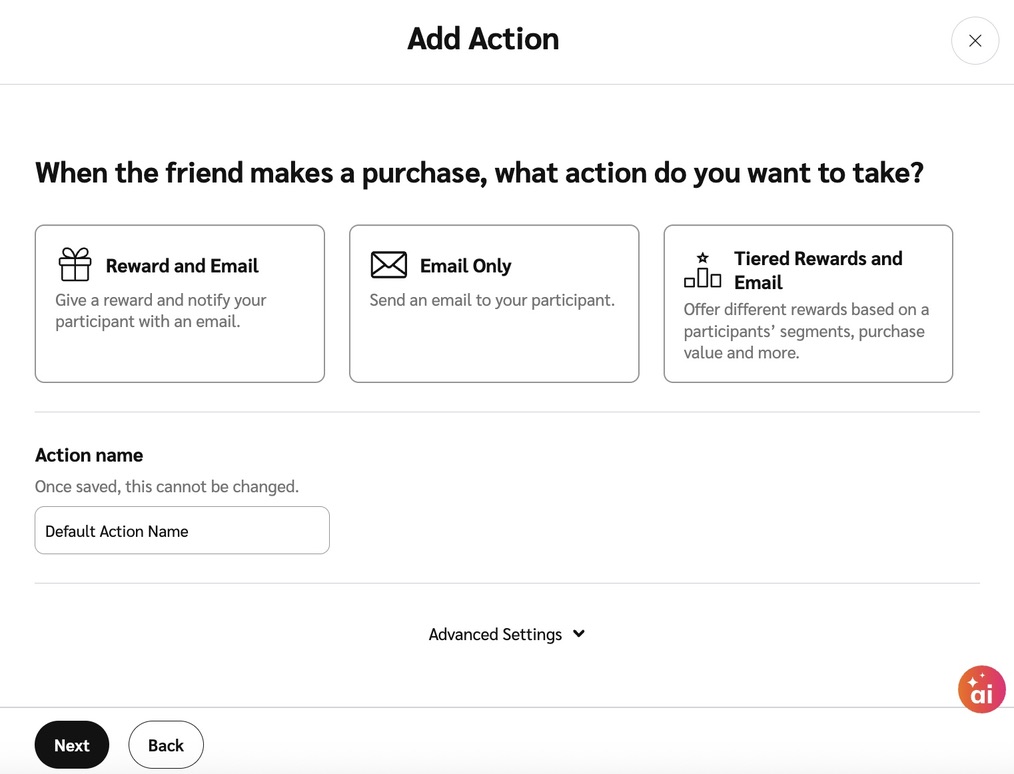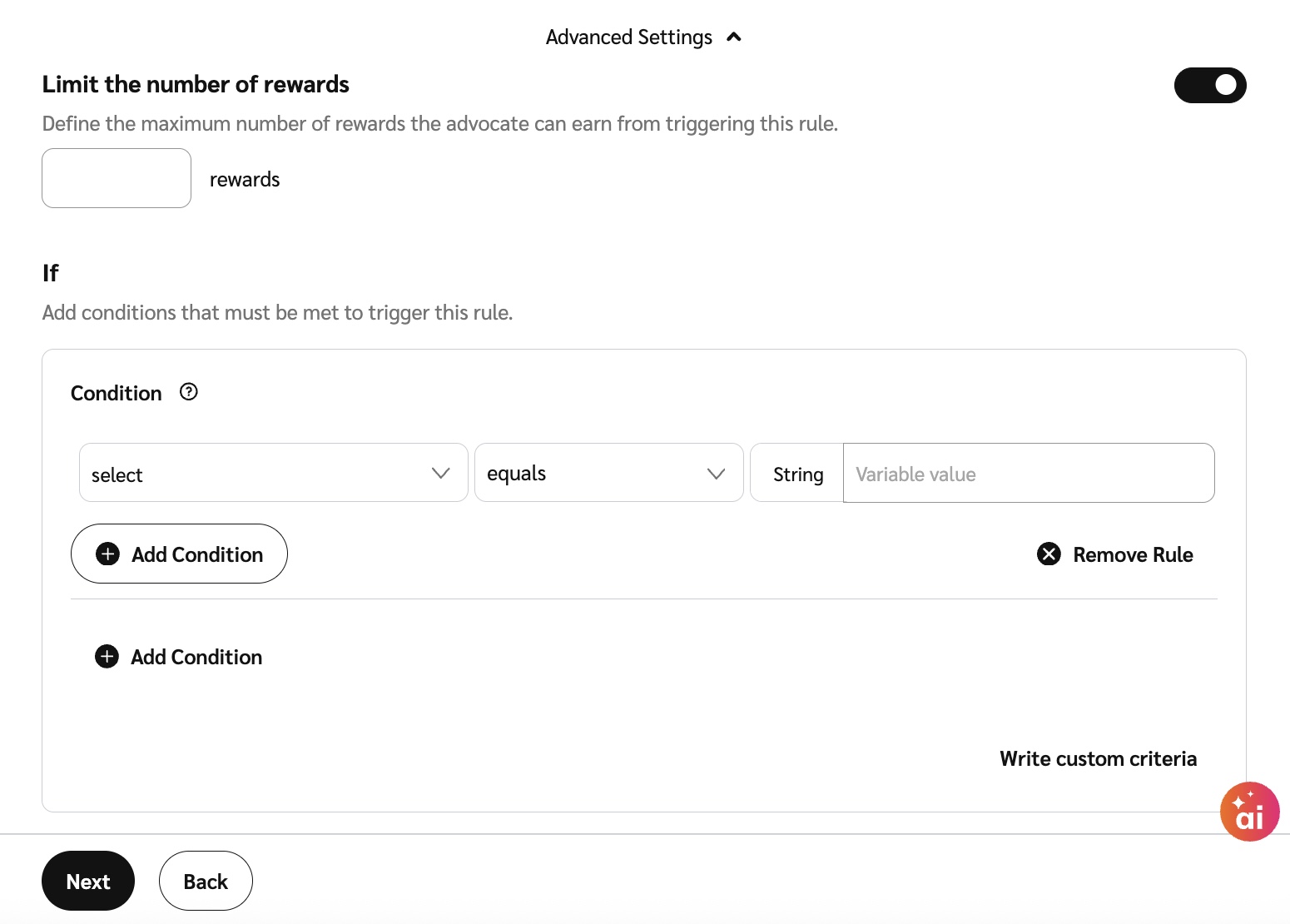Referral programs depend on pairings of rules and actions to appropriately reward participants or trigger actions (such as sending an email). Together, these rules and actions form program rules. A rule is your desired target user behavior—what you want them to do. In referral programs, they can apply to both customer advocates and the friends they refer. An action is triggered when the participant achieves a rule.

The rules you set will depend on your program and the outcomes you want to drive. At least one conversion rule is required for every referral program. Examples of rules include:
Referred friend makes a purchase
Customer advocate makes 5 referrals
Referred friend becomes a qualified lead
impact.com relies on the events you send to us to act as triggers for the rule. During program setup, select your rule’s trigger and an event key.
Trigger | Description |
|---|---|
Referral starts | When a referral is started. |
Friend makes a purchase | When the referred friend makes a purchase tracked by an event. |
Friend refunds a purchase | When a referred friend returns a product made on a purchase that's tracked by an event. |
Friend performs an action | When the referred friend performs an action tracked by an event, like making a purchase. |
Friend's segment and/or field changes | When a referred friend has a field or segment that updates or changes. |

You can place conditions on a rule if you only want it to be triggered in specific situations. Here are a few conditions that can be applied to a rule.
A referred friend makes a purchase, and the total of the purchase is at least $100.
The customer advocate makes 5 referrals who remain active subscribers for at least six months.
A referred friend starts a subscription, and the advocate must also be an active subscriber.
Rule conditions can be based on several different types of data from our databases:
Data | Description |
|---|---|
User object (either customer advocate or referred friend) | Includes their core details, like email and first name, as well as custom fields. |
Event | Includes any fields inside of the event that can trigger a rule, like revenue, product name or plan. |
Rules | A count of rules and referrals is made accessible in the program logic, as well as whether this is the first time the rule is being triggered. This is useful for running programs that issue rewards every X number of referrals, or ensuring that a rule/action is only triggered once. |
Time | The system can reference the current time and compare it against key dates of the referral (like when the referral was started) or the user (like when the user was created). |
When a participant achieves a rule, an action is triggered. Actions can include:
Sending a reward and email or only an email to the customer advocate or referred friend
Issuing a tiered reward and email with a varying value
Revert referral or Cancel Rewards

For example, a Purchase made rule can be set, and the associated action could be Reward and Email. With this rule and action pair, your customer advocate is notified by email and issued a reward whenever a friend they’ve referred makes a purchase.
Like rules, actions can have their own conditions to ensure that even if a rule is hit, the associated action only completes in specific circumstances.
It is possible to add criteria to both rules and actions due to the possibility of having multiple rules for the same action. Although the conditions for a rule have been met, you might want to set action conditions to control which reward is issued or email is sent. This is only possible at certain program levels, reach out to support for more information.

You can think of rules and actions as a series of if-then statements. Let’s take a look at a few examples.
Desired Outcome | If (Rule) | Then (Action) |
|---|---|---|
Reward the customer advocate with a $20 gift card for every 5 qualified leads they refer | Referred friend becomes a qualified lead | Reward and email |
Reward the referred friend with a $100 credit on initial signup and the customer advocate with a $500 credit if the opportunity in Salesforce is set to “Closed Won.” | Referred friend completes initial signup | Reward and email (customer advocate) |
Reward and email (referred friend) | ||
Send the customer advocate a notification email when the person they referred successfully completes a demo. | Referred friend completes a demo | Email only |